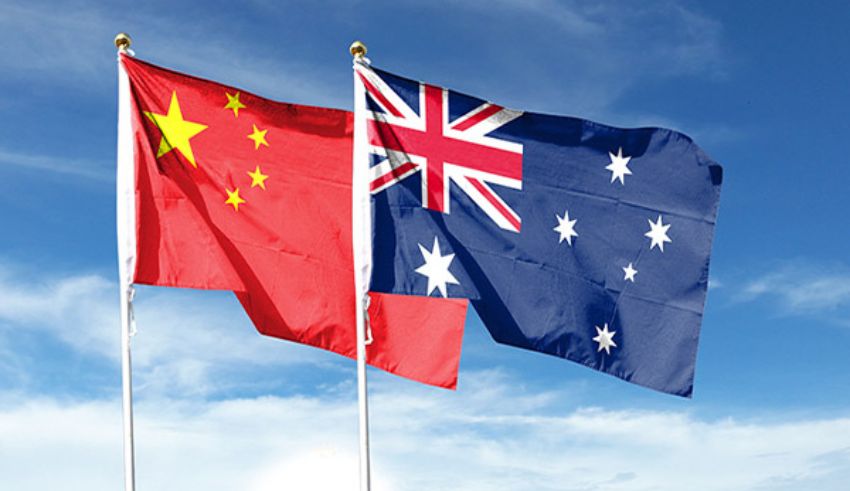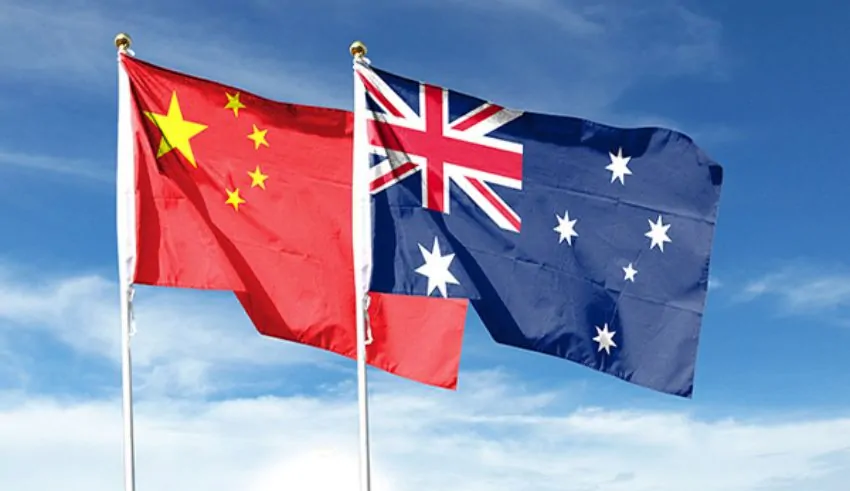

(C) Australian Meat Council
Following a furious encounter at the United Nations, China accused Australia of “hypocrisy” and “systemic racism,” so escalating tensions between China and Australia on the international scene. Following a combined statement released on October 22 by Australia, the United States, the United Kingdom, and twelve other countries denouncing claimed violations of human rights by China in the areas of Xinjiang and Tibet, the claims surfaced. Particularly in light of human rights campaigning, this diplomatic conflict emphasizes the tense character of international interactions.
Referring to a UN report from August 2022, the joint statement said that Chinese authorities had perpetrated “crimes against humanity” in Xinjiang, mostly affecting Uyghur Muslims and other ethnic minorities. Produced by the UN Office of the High Commissioner for Human Rights, the report examined extensive abuses in the area including forced labor, mass detentions, and cultural suppression. These results infuriated people all around and caused China’s policies in Xinjiang to be under further scrutiny, which pushed different nations to adopt a strong opposition to Beijing.
James Larsen, Australia’s ambassador to the UN, underlined that although China had several chances to significantly resolve these issues, it had not done so. He underlined the importance of responsibility by stressing reliable accounts of violations of human rights in Tibet, including severe limitations on political expression and the forced labor policies applied on Tibetan people. Emphasizing that the world community has to keep fighting for the rights of underprivileged groups under persecution, Larsen denounced the deterioration of cultural, educational, and religious rights in Tibet.
Chinese foreign ministry spokesman Lin Jian responded, charging Australia of ignoring its own human rights record. Citing its handling of refugees, immigrants, and Indigenous people—which he claimed left these people in vulnerable circumstances—Lin attacked Australia for “systemic racism.” He also denounced Australian troops for engaging in “abhorrent crimes” during military operations abroad, especially in Afghanistan, where war crimes have been claimed.
Lin’s comments presented Australia as a society beset with its own injustices, contending that Western nations sometimes ignore their own human rights concerns in favor of criticizing others. Lin says that this double standard highlights Australia’s and its allies’ hypocrisy in their criticism of China. He charged these nations of selectively drawing attention to violations of human rights while neglecting their shortcomings, therefore compromising their moral power in international negotiations.
Fu Cong, China’s ambassador to the UN, highlighted Australia’s position on the Gaza crisis, hence escalating the charges. Fu noted that Australia had mostly stayed quiet on Israel’s military operations in Gaza following the October 7 Hamas strike while it denounced China over Xinjiang. Fu said that Australia and other Western countries were downplaying the humanitarian crisis in Gaza, therefore damaging their credibility on human rights, given hundreds of Palestinians dead in air and ground operations.
Fu’s comment took a strong line, implying that Western nations’ so-called defense of Muslims was hypocritical, particularly in light of their subdued reaction to the continuing catastrophe in Gaza. He said that Western countries’ claims of safeguarding Muslim rights were nothing more than “the biggest lie” if the rising death toll in Gaza failed to “awaken the conscience” of such countries. This incisive criticism highlighted supposed prejudices in Western nations’ behavior, therefore guiding the discussion on human rights in a larger geopolitical framework.
Australian prime minister Anthony Albanese refuted the claims, underlining once more his government’s ethical dedication to handling human rights issues. Australia would, he said, keep defending its national interests while interacting with China. Albanese underlined that Canberra will keep this posture going forward and had often brought up concerns of human rights with Chinese officials.
Albanese highlighted Australia’s strategy of working where feasible but also disagreeing when needed during his trip to Samoa for the Commonwealth Heads of Government Meeting. Declaring Australia’s ideals and dedication to human rights, his remarks nevertheless indicated a calculated approach meant to control a complicated relationship with China.
This conflict between China and Australia draws attention to the ever more complicated worldwide conversation around international relations, diplomacy, and human rights. Tensions over human rights abuses—along with conflicting geopolitical interests—remain major obstacles as both nations try to improve trade and diplomatic relations.
The more general consequences of this conflict go beyond only bilateral relations. The event emphasizes how challenging it is to negotiate human rights issues in a society when national interests and power relations usually take front stage above moral considerations. Countries must strike a balance between their diplomatic and economic relations and their necessity to respect world human rights norms.
Furthermore, this episode demonstrates the increasing tendency of nations using human rights as a political instrument in their foreign policy. The charges from both sides show how countries could use human rights language to forward their goals or stifle opposition. Given political reasons can complicate group responses, this circumstance also begs issues regarding the efficacy of international bodies such as the UN in combating violations of human rights worldwide.
Both countries will have to carefully negotiate these tensions as the scenario unfolds, juggling their internal and foreign agendas. The continuous debate on human rights will probably remain a divisive topic in world affairs, and Australia’s interactions with China could operate as a microcosm of more general world tendencies. Regardless of the political environment, the international community has to be alert and active in advancing human rights, looking for a road toward justice and responsibility for all impacted people.
Other countries and human rights organizations will closely watch Australia-China relations going forward, especially with relation to human rights. The world observes how these two nations balance their differences within growing global tensions and changing alliances, hence raising the stakes. The story that is developing will not only affect their bilateral relations but also impact the general international human rights debate.
NextRise 2025-the biggest startup and tech event in Asia-is ready to take place in Seoul on June 26-27 at COEX,…
On this reunion occasion marking 20 years after their debut, the anticipation of the fans seems to be reaching greater…
South Korean boy band RIIZE is returning to Singapore on January 24, 2026 as part of their “RIIZING LOUD” Asia…
Experience Japan’s longest running all-night rock festival, RISING SUN ROCK FESTIVAL 2025 in EZO, with incredible acts, a wealth of…
United States Immigration and Customs Enforcement conducted audits of three Denver cleaning companies, leading to more than $8 million in…
Cricket fans, rejoice! The Olympic Council of Asia (OCA) has confirmed that cricket will be part of the 2026 Asian…
This website uses cookies.
Read More